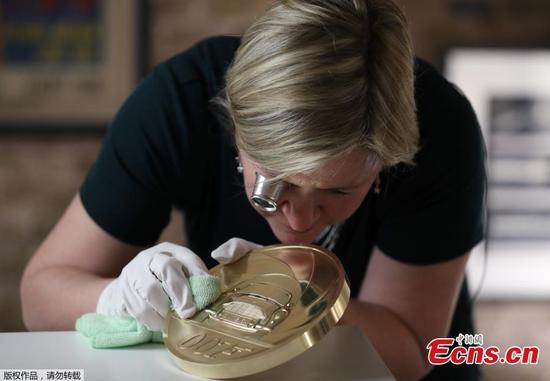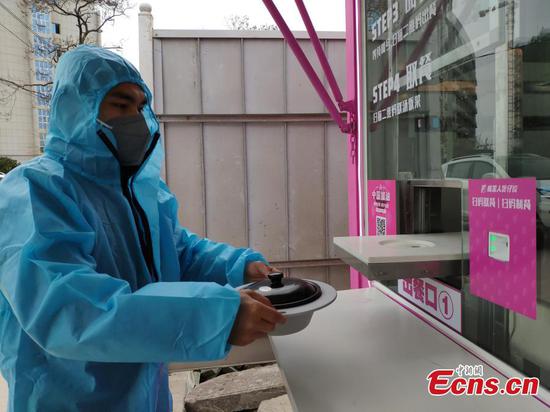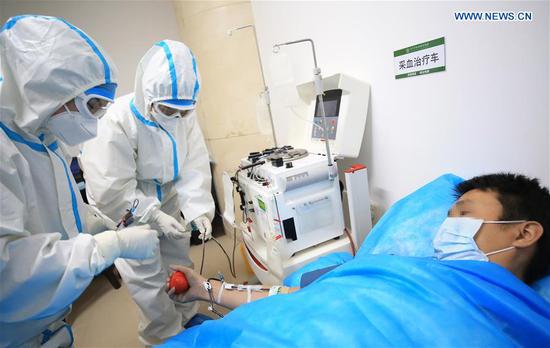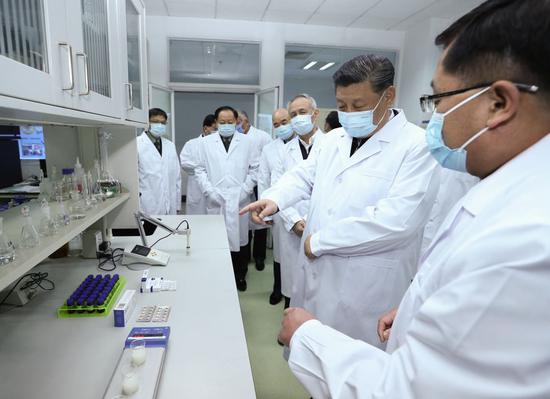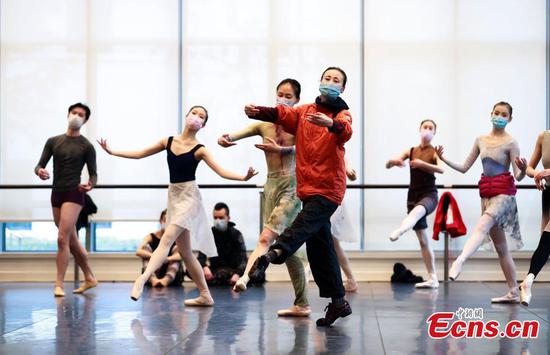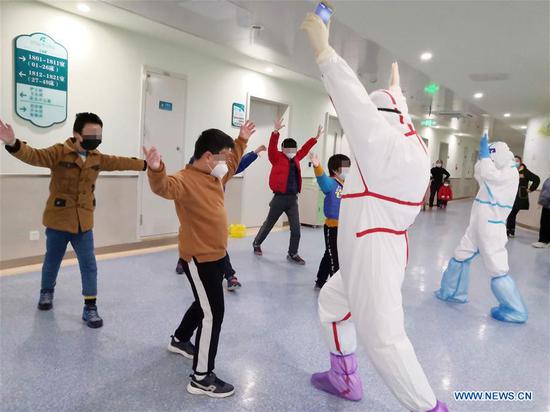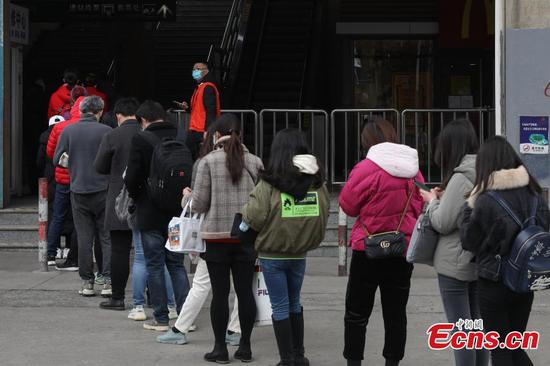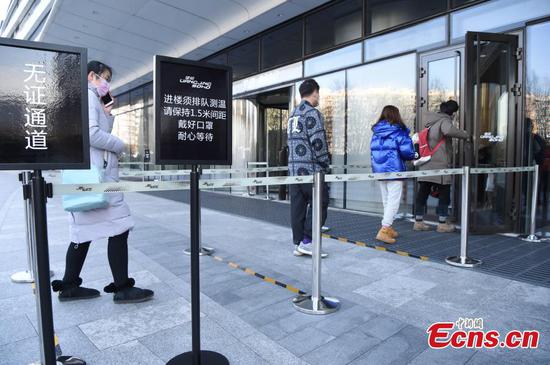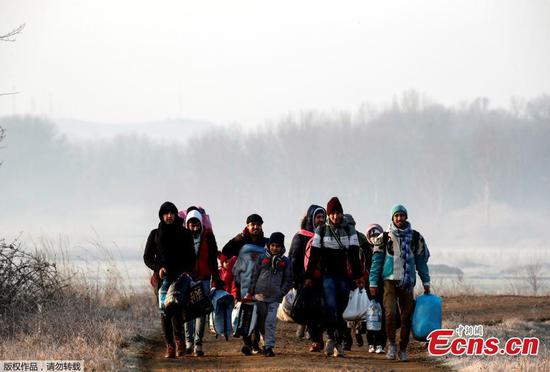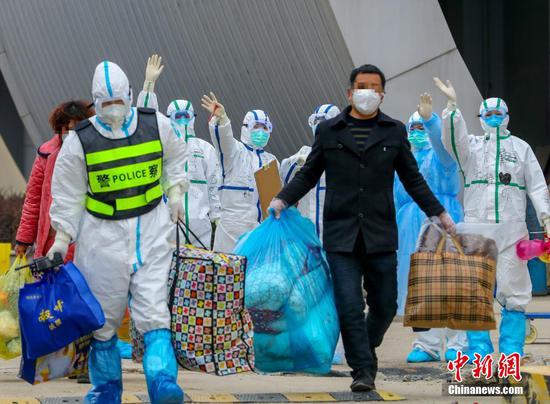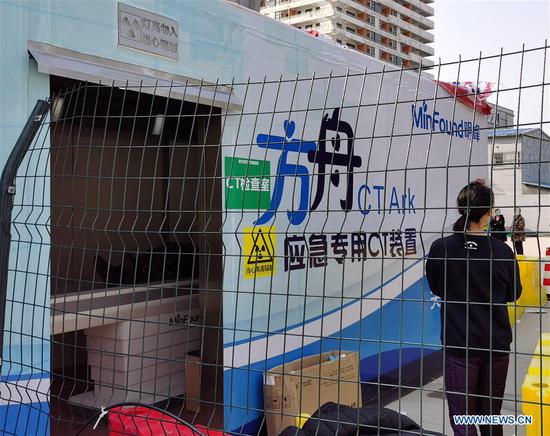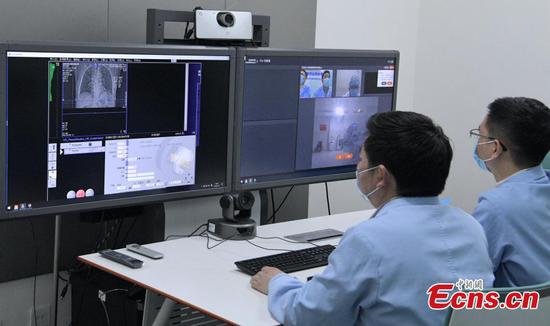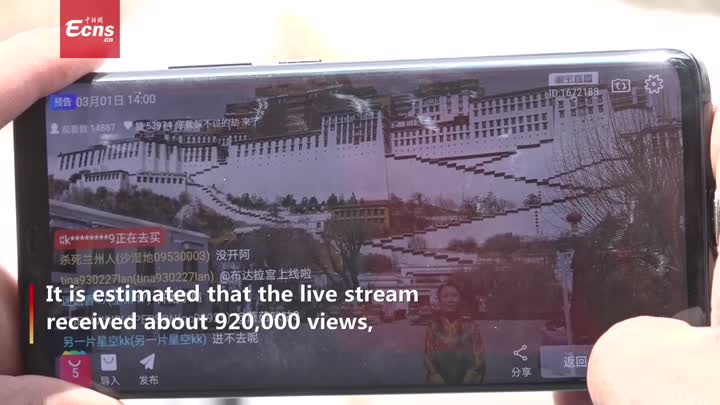Bai Xiyan, 54, has stayed at home for more than one month due to the novel coronavirus epidemic prevention and control but is not idly sitting around.
She knits two pairs of slippers every day, earning 80 yuan (about 11.5 U.S. dollars).
"It's better not to go out at such time. I stay at home and make slippers so that I can sell them for money after the epidemic," she said.
In Xiayang Village in northwest China's Gansu Province, nearly half of the 970 villagers including Bai are poverty-stricken. Villagers make a living by raising cattle and planting corn.
"In winter, we don't have farm work. Villagers have nothing to do but stay at home," said villager Mu Yaner. Her family of four relies on her husband to do some odd jobs, earning less than 3,000 yuan a month.
In Xiayang, most male villagers go to large Chinese cities for more job opportunities, leaving women behind to take care of their families and do farm work.
To help those "left-behind" women earn more money and shake off poverty, the Women's Federation of Gansu launched a skill training program for women in rural areas in 2019.
Last November, 20 impoverished villagers including Bai and Mu attended a two-day training course on knitting handicrafts such as slippers and hats.
"At first, woman villagers were not willing to attend the training course as most of them have a low education level," said Zhang Lixia, a village official in Xiayang.
Zhang and her colleagues visited villagers door to door to encourage them to try. "It is easy to learn. Try to use your spare time to make more money," Zhang told them.
After the first training courses, the federation invited a local handicraftsman to offer training courses every week.
Bai is among the first group in the training program. "It was hard at the very beginning, but I become familiar with the knitting skills after more practice. Now I can make two to three pairs each day," said Bai.
They faced a new challenge later. "We have no marketing channel. Compared with the products in shopping malls, ours are not exquisite," said Zhang.
Zhang and her colleagues did not give up, and they tried to advertise on their WeChat accounts.
Their efforts paid off. Before the Spring Festival holiday, several companies came to purchase more than 200 pairs of handmade slippers.
"Everyone is happy and relieved. Although it is not a lot of money, we have found a new way to make money," said Bai, who can now earn 800 to 1,000 yuan per month.
According to statistics from the Women's Federation of Gansu, over the past five years, 220,000 impoverished women have benefitted from such training courses, with an annual per capita increase in income of more than 2,000 yuan.
Zhang is busy with organizing online courses for her villagers during the epidemic. "Woman villagers can take the chance to learn to make new products," she said.
Zhang also plans to open an e-commerce shop to increase sales after the epidemic. "Everything will become better and so will our life."









